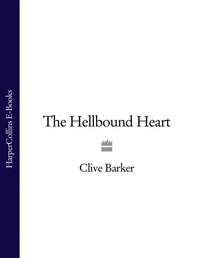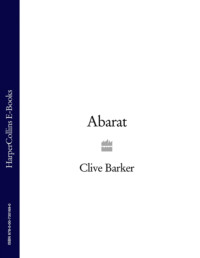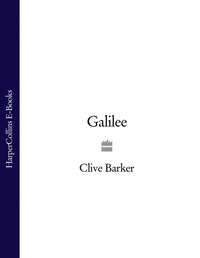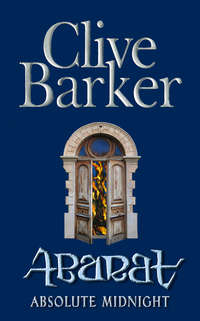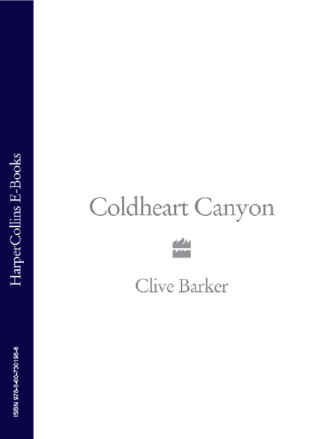
Полная версия
Coldheart Canyon
Zeffer had found the performance almost comical, it was so exaggerated; but the Father had apparently been completely taken in by it. At one point he’d put his hand under Katya’s chin to raise her face, telling her there was no reason to be shy.
Shy! Zeffer had thought. If only Sandru knew what this so-called shy woman was capable of! The parties she’d master-minded up in her Canyon – the place gossip-columnists had dubbed Coldheart Canyon; the excesses she’d choreographed behind the walls of her compound; the sheer filth she was capable of inventing when the mood took her. If the mask she’d been wearing had slipped for a heartbeat, and the poor, deluded Father Sandru had glimpsed the facts of the matter, he would have locked himself in a cell and sealed the door with prayers and holy water to keep her out.
But Katya was too good an actress to let him see the truth.
Perhaps in one sense, Katya Lupi’s whole life had now become a performance. When she appeared on screen she played the role of simpering, abused orphans half her age, and large portions of the audience seemed to believe that this was reality. Meanwhile, every weekend or so, out of sight of the people who thought she was moral perfection, she threw the sort of parties for the other idols of Hollywood – the vamps and the clowns and the adventurers – which would have horrified her fans had they known what was going on. Which Katya Lupi was the real one? The weeping child who was the idol of millions, or the Scarlet Woman who was the Mistress of Coldheart Canyon? The orphan of the storm or the dope-fiend in her lair? Neither? Both?
Zeffer turned these thoughts over as Sandru took him from room to room, showing him tables and chairs, carpets and paintings; even mantelpieces.
‘Does anything catch your eye?’ Sandru asked him eventually.
‘Not really, Father,’ Zeffer replied, quite honestly. ‘I can get carpets as fine as these in America. I don’t need to come out into the wilds of Romania to find work like this.’
Sandru nodded. ‘Yes, of course,’ he said. He looked a little defeated.
Zeffer took the opportunity to glance at his watch. ‘Perhaps I should be getting back to Katya,’ he said. In fact, the prospect of returning to the village and sitting in the little house where Katya had been born, there to be plied with thick coffee and sickeningly sweet cake, while Katya’s relatives came by to stare at (and touch, as if in disbelief) their American visitors, did not enthral him at all. But this visit with Father Sandru was becoming increasingly futile, and now that the Father had made his mercenary ambitions so plain, not a little embarrassing. There wasn’t anything here that Zeffer could imagine transporting back to Los Angeles.
He reached into his coat to take out his wallet, intending to give the Father a hundred dollars for his troubles. But before he could produce the note the Father’s expression changed to one of profound seriousness.
‘Wait,’ he said. ‘Before you dismiss me let me say this: I believe we understand one another. You are looking to buy something you could find in no other place. Something that’s one of a kind, yes? And I am looking to make a sale.’
‘So is there something here you haven’t shown me?’ Zeffer said. ‘Something special?’
Sandru nodded. ‘There are some parts of the Fortress I have not shared with you,’ he said. ‘And with good reason, let me say. You see there are people who should not see what I have to show. But I think I understand you now, Mr Zeffer. You are a man of the world.’
‘You make it all sound very mysterious,’ Zeffer said.
‘I don’t know if it’s mysterious,’ the priest said. ‘It is sad, I think, and human. You see, Duke Goga the man who built this Fortress – was not a good soul. The stories your Katya said she had been told as a child –’
‘Were true?’
‘In a manner of speaking. Goga was a great hunter. But he did not always limit his quarry to animals.’
‘Good God. So she was right to be afraid.’
‘The truth is, we are all a little afraid of what happened here,’ Sandru replied, ‘because we are none of us certain of the truth. All we can do, young and old, is say our prayers, and put our souls into God’s care when we’re in this place.’
Zeffer was intrigued now.
‘Tell me then,’ he said to Sandru. ‘I want to know what went on in this place.’
‘Believe me please when I tell you I would not know where to begin,’ the good man replied. ‘I do not have the words.’
‘Truly?’
‘Truly.’
Zeffer studied him with new eyes; with a kind of envy. Surely it was a blessed state, to be unable to find words for the terribleness of certain deeds. To be mute when it came to atrocity, instead of gabbily familiar with it. He found his curiosity similarly muted. It seemed distasteful – not to mention pointless – to press the man to say more than he expressed himself capable of saying.
‘Let’s change the subject. Show me something utterly out of the ordinary,’ Zeffer said. ‘Then I’ll be satisfied.’
Sandru put on a smile, but it wasn’t convincing. ‘It isn’t much,’ he said.
‘Oh sometimes you find beauty in the strangest places,’ Zeffer said, and as he spoke the little face of Katya Lupescu came into his mind’s eye; pale in a blue twilight.
Chapter 2
Sandru led the way down the passageway to another door, this one rather smaller than the oak door they’d come through to get to this level. Out came his keys. He unlocked the door, and to Zeffer’s surprise he and the priest were presented with another flight of steps, taking them yet deeper into the Fortress.
‘Are you ready?’ the Father asked.
‘Absolutely,’ Zeffer said.
Down they went. The stairs were steep, the air becoming noticeably more frigid as they descended. Father Sandru said nothing as they went; he glanced back over his shoulder two or three times, to be sure that he still had Zeffer on his heels, but the expression on his face was far from happy, as though he rather regretted making the decision to bring Zeffer here, and would have turned on his heel and headed back up to the relative comfort of the floor above at the least invitation.
At the bottom of the stairs he stopped, and rubbed his hands together vigorously.
‘I think before we proceed any further we should take a glass of something to warm us,’ he said. ‘What do you say?’
‘I wouldn’t say no,’ Zeffer said.
The Father went to a small cubby-hole in the wall a few yards from the bottom of the stairs, from which he brought a bottle of spirits and two glasses. Zeffer didn’t remark on the liquor’s proximity; nor could he blame the brothers for needing a glass of brandy to fortify them when they came down here. Though the lower level was supplied with electricity (there were lengths of electric lamps looped along the walls of the corridor) the light did nothing to warm the air nor comfort the spirit.
Father Sandru handed Zeffer a glass, and took the cork out of the bottle. The pop echoed off the naked stone of walls and floor. He poured Zeffer a healthy measure of the liquor, and then an even healthier measure for himself, which he had downed before Zeffer had got his own glass to his lips.
‘When I first came here,’ the Father said, ‘we used to brew our own brandy, from plums we grew on our own trees.’
‘But not now?’
‘No,’ the Father said, plainly saddened at the fact that they were no longer producers of liquor. ‘The earth is not good any longer, so the plums never ripen properly. They remain small and sour. The brandy made from such fruit is bitter, and nobody wants to drink it. Even I will not drink it, so you can judge for yourself how bad it must be!’ He laughed at his self-deprecation, and used the laughter as a cue to fill his glass up again. ‘Drink,’ he said to Zeffer, tapping his glass against Zeffer’s glass as though this was the first he’d had.
Zeffer drank. The brandy was stronger than the stuff he’d had at the hotel in Brascov. It went down smoothly, warming his belly when it arrived.
‘Good, yes?’ the Father said, having downed his second glass.
‘Very.’
‘You should have another before we go on.’ And he filled Zeffer’s glass without waiting for a reply. ‘We’re a long way below ground here, and it gets hellishly cold …’ Glasses were filled, and emptied. The Father’s mood was noticeably better now, and his tone chattier. He put the glasses and the bottle back in the hole in the wall, and then led the way down the narrow corridor, talking as he went. ‘When the Order first came to the Fortress, there were plans to found a hospital here. You see, there are no hospitals within a hundred and twenty miles of here. It would be very practical. But this is not a place for the sick. And certainly not the dying.’
‘So: no hospital?’
‘Well, we made preparations. You saw yesterday one of the wards –’
Zeffer remembered. He’d glanced through an open door and there’d been two rows of iron beds, with bare mattresses.
‘I thought it was a dormitory for the brothers.’
‘No. We each have our own cells. There are only eleven of us, so we can each have a place in which to meditate and pray …’ He offered Zeffer a glance, accompanied by a small smile. ‘And drink.’
‘I can’t imagine it’s a very satisfying life,’ Zeffer said.
‘Satisfying?’ The idea was obviously a little confounding to Sandru. ‘Meaning what?’
‘Oh, just that you don’t get to work in the community. You can’t help people.’
They had come to the end of the passageway, and Sandru sorted through his collection of keys in order to open the third and final door.
‘Who can truly be helped?’ he said, his face turned down to the labour of sorting. ‘I suppose perhaps children can be comforted, sometimes, if it’s dark and they’re afraid. You can tell them you’re with them; and that will sometimes stop them crying. But for the rest of us? Are there really any words that help? I don’t know of any.’ He had found the right key, and now slipped it noisily into the antiquated lock. As he did so, he glanced up at Zeffer. ‘I think there’s more comfort to be had from seeing beautiful women on the cinema screen than in any prayer I know. Well, perhaps not comfort. Distraction.’ He turned the key in the lock.
‘And if that sounds like heresy, well so be it.’ Sandru pushed the door open. The room was in darkness, but despite that fact there was a warmth in the air; at least in contrast to the chilly air of the passageway. Perhaps the difference was no more than two or three degrees, but it felt significant.
‘Will you wait here a moment?’ Sandru said. ‘I’ll just bring a light.’
Zeffer stayed where he was, staring into the darkness, enjoying the slight rise in temperature. There was enough illumination spilling from the passageway behind him to light the threshold. There, carved into stone beneath his feet, was a curious inscription:
Quamquam in fundis inferiorum sumus, oculos angelorum tenebimus.
He didn’t linger to puzzle over this for more than a few seconds, but instead let his eyes drift up and into the room itself. The chamber before him was large, it seemed; and unlike the rest of the rooms and corridors, which were simply constructed, far more elaborate. Could he make out pillars, supporting several small vaults? He thought so. There were chairs and tables within a few yards of where he stood, and what appeared to be lamps or the like heaped on top of them.
The confusion inside was explained a moment later, when the Father returned with a bare bulb, attached to a length of electric cord.
‘We use this as a storeroom,’ he said. ‘Many of the items we found in the Fortress when we arrived we put down here, just to get them out of the way.’ He lifted the light to give Zeffer a better view.
Zeffer’s estimation of the size of the place, and of the complexity of its construction, had been conservative, it now turned out. The chamber was fully thirty-five feet long; and almost as broad, the ceiling (which was indeed divided into eight elaborately-vaulted sections, divided by pillars) higher than the passageway by six feet or more. The floor was littered with furniture and crates; the place plainly filled by hands that had little or no respect for the objects they were moving; wishing only to put them quickly out of sight. It occurred to Zeffer that if indeed there were treasures here the chances of finding them – or indeed of their being in reasonable condition when discovered – were remote. Still, the Father had brought him this far at no little inconvenience to himself; it would be discourteous to now show no interest in what the chamber contained.
‘Did you have a part in moving all of this?’ he asked Sandru, more out of a need to fill the silence between them than because he was genuinely curious.
‘Yes, I did,’ the Father replied. ‘Thirty-two years ago. I was a much younger man. But it was still a back-breaking labour. They built things big here. I remember thinking that maybe the stories were right …’
‘Stories about –’
‘Oh … nonsenses. About this furniture having been built for the retinue of the Devil’s wife.’
‘The Devil’s wife.’
‘Lilith, or Lilitu. Sometimes called Queen of Zemargad. Don’t ask me why.’
‘This is the same woman Katya spoke about?’
Sandru nodded. ‘That’s why the locals don’t have much hope for the sick if they stay here. They think Lilith’s curse is on the place. As I say: nonsenses.’
Whether it was nonsense or not, the story lent some flavour to this banal adventure. ‘May I look more closely?’ Zeffer asked.
‘That’s what we’re here for,’ Father Sandru replied. ‘I hope there’s something that catches your eye, for your sake. All these stairs and doors. I’d forgotten how far down it was …’
‘I’m sorry to have made this so burdensome,’ Zeffer said, quite sincerely. ‘If I’d known you were going to go to so much trouble I wouldn’t have –’
‘No, no,’ Sandru said. ‘It’s not a trouble to me. I only thought there might be an item here that pleased you. But now I’m down here I doubt it. To be truthful I believe we should have taken all this trash up the mountain and thrown it in the deepest gorge we could find.’
‘Why didn’t you do just that?’
‘It wasn’t my choice. I was just a young priest at the time. I did as I was told. I moved tables and chairs and tapestries, and I kept my counsel. Our leader then was Father Nicholas, who was very clear on the best thing to be done – the safest thing for our souls – and would not be moved on the subject. So we did as we were told. Father Nicholas, by the way, had the foulest temper of any man I ever knew. We all lived in fear of him.’
Zeffer moved into the room, talking as he went: ‘May I say something that I hope won’t offend you?’
‘I’m not easily offended, don’t worry.’
‘Well … it’s just that the more I hear about your Order, the less like priests you seem to be. Father Nicholas’s temper and the brothers all familiar with Theda Bara. And then the brandy.’
‘Ah, the sins of the flesh,’ Father Sandru said. ‘We do seem to have more than our share, don’t we?’
‘I have offended you.’
‘No. You’ve simply seen the truth. And how can a man of God be justly offended by that? What you’ve observed is no coincidence. We are all … how shall I put this? … men who have more than our share of flaws. Some of us were never trusted with a flock. Others, like Father Nicholas, were. But the arrangement was never deemed satisfactory.’
‘His temper?’
‘I believe he threw a Bible at one of the parishioners who was sleeping through the good Father’s sermon.’ Zeffer chuckled; but his laughter was silenced a moment later. ‘It killed the man.’
‘Killed –?’
‘An accident, but still …’
‘– with a Bible. Surely not.’
‘Well, that’s how the rumour went. Father Nicholas has been dead twenty years, so there’s no way to prove it or disprove it. Let’s hope it isn’t true, and if it is, hope he’s at peace with it now. The fact is, I’m glad I was never trusted with a parish. With a flock to tend. I couldn’t have done much for them.’
‘Why not?’ Zeffer asked, a little impatient with Sandru’s melancholy now. ‘Do you have difficulty finding God in a place like this?’
‘To be honest Mr Zeffer, with every week that passes – I almost want to say with every hour – I find it harder to see a sign of God anywhere. It would not be unreasonable, I think, to ask Him to show himself in beauty. In the face of your lady-companion, perhaps … ?’
Katya’s face as proof of God’s presence? It was an unlikely piece of metaphysics, Zeffer thought.
‘I apologize,’ Sandru said. ‘You didn’t come here to hear me talk about my lack of faith.’
‘I don’t mind.’
‘Well I do. The brandy makes me maudlin.’
‘Shall I take a look then?’ Zeffer suggested. ‘At what-ever’s in here?’
‘Yes, why don’t we?’ Sandru replied. ‘I wish I could give you some kind of guidance, but …’ He shrugged; his favourite gesture. ‘Why don’t you start looking, and I’ll go back and get us something more to drink?’
‘Nothing more for me,’ Zeffer replied.
‘Well, then for me,’ Sandru said. ‘I’ll only be a moment. If you need me, just call. I’ll hear you.’
Zeffer took a moment, when the man was gone, to close his eyes and let his thoughts grow a little more orderly. Though Sandru spoke slowly enough, there was something mildly chaotic about his thought processes. One minute he was talking about furniture, the next about the mad Duke and his hunter’s habits, the next about the fact that they couldn’t make a hospital here because the Devil’s wife had cursed the place.
When he opened his eyes his gaze moved back and forth over the furniture and the boxes without lingering on anything in particular. The bare bulb was stark, of course, and its light far from flattering, but even taking that fact into account there was nothing in the room that caught Zeffer’s eye. There were some finely-wrought things, no question; but nothing extraordinary.
And then, as he stood there, waiting for Sandru to return, his gaze moved beyond the objects that filled the chamber, and came to rest instead on the walls beyond.
The chamber was not, he saw, made of bare stone. It was covered with tiles. In every sense, this was an understatement, for these were no ordinary tiles. Even by so ungenerous a light as the bare bulb threw upon them, and viewed by Zeffer’s weary eyes, it was clear they were of incredible sophistication and beauty.
He didn’t wait for Father Sandru to return; rather, he began to push through the piles of furniture towards the designs that covered the walls. They covered the floor, too, he saw, and ceiling. In fact, the chamber was a single masterpiece of tile; every single inch of it decorated.
In all his years of travelling and collecting he’d never seen anything quite like this. Careless of the dirt and dust laden webs which covered every surface, he pushed on through until he reached the nearest wall. It was filthy, of course, but he pulled a large silk handkerchief out of his pocket, and used it to scrub away some of the filth on the tiles. It had been plain even from a distance that the tiles were elaborately designed, but now, as he cleared a swathe across four or five, he realized that this was not an abstract pattern but a representation. There was part of a tree there, on one of the tiles, and on another, adjacent to it, a man on a white horse. The detail was astonishing. The horse was so finely painted, it looked about ready to prance off around the room.
‘It’s a hunt.’
Sandru’s voice startled him; Willem jerked back from the wall, so suddenly that it was as though he’d had his face in a vacuum, and was pulling it free. He felt a drop of moisture plucked from the rim of his eye; saw it flying towards the cleaned tiles, defying gravity as it broke on the flank of the painted horse.
It was a strange moment; an illusion surely. It took him a little time to shake off the oddness of it. When he looked round at Sandru, the man was slightly out of focus. He stared at the Father’s shape until his eyes corrected the problem. When they did he saw that Sandru had the brandy bottle back in his hand. Apparently its contents had been more potent than Zeffer had thought. The alcohol, along with the intensity of his stare, had left him feeling strangely dislocated; as though the world he’d been looking at – the painted man on his painted horse, riding past a painted tree – was more real than the old priest standing there in the doorway.
‘A hunt?’ he asked at last. ‘What kind of hunt?’
‘Oh, every kind,’ Sandru replied. ‘Pigs, dragons, women –’
‘Women?’
Sandru laughed. ‘Yes, women,’ he said, pointing towards a piece of the wall some yards deeper into the chamber. ‘Go look,’ he said. ‘You’ll find the whole thing is filled with obscenities. The men who painted this place must have had some strange dreams, let me tell you, if this is what they saw.’
Zeffer pushed aside a small table, and then pressed himself between the wall and a much larger piece of furniture, which looked like a wooden catafalque, too large to move. Obliged to slide along the wall, his jacket did the job his handkerchief had done moments before. Dust rose up in his face.
‘Where now?’ he asked the Father when he’d got to the other side of the catafalque.
‘A little further,’ Sandru replied, uncorking the brandy and shamelessly taking a swig from the bottle.
‘I need some more light back here,’ Zeffer said.
Reluctantly, Sandru went to pick up the lamp. It was hot now. He rummaged in one of the nearby boxes to find something to protect his palm, found a length of cloth and wrapped it around the base of the lamp. Then he tugged on the light-cord, to give himself some more play, and made his way through the confusion of stuff in the room, to where Zeffer was standing.
The closer Sandru came with the light the more Zeffer could make out of the painting on the tiles. There was a vast panorama spread to left and right of him; and up above his head; and down to the ground, spreading beneath his feet. Though the walls were so filthy that in places the design was entirely obliterated, and in other places there were large cracks in the tiles, the image had an extraordinary reality all of its own.
‘Closer,’ Zeffer said to Sandru, sacrificing the arm of his fur coat to clean a great portion of tiled wall in front of him. Each tile was about six inches square, perhaps a little smaller, and set close to one another with a minimum of grouting, so as to preserve the continuity of the picture. Despite the sickly light of the bulb, its luminescence still showed that the colour of the image had not been diminished by time. The beauty of the renderings was perfectly evident. There were a dozen kinds of green in the trees, and more, sweeter hues in the growth between them. Beneath the canopy there were burnt umbers and siennas and sepias in the trunks and branches, skilfully highlighted to lend the impression that light was falling through the foliage and catching the bark. Not all the tiles were rendered with the same expertise, he saw.
Some of the tiles were the work of highly sophisticated artists; some the work of journeymen; some – especially those that were devoted to areas of pure foliage – the handiwork of apprentices, working on their craft by filling in areas that their masters neither had the time nor perhaps the interest to address.
But none of this spoiled the power of the overall vision. In fact the discontinuity of styles created a splendid energy in the piece. Portions of the world were in focus, other parts were barely coherent; the abstract and the representational sitting side by side on the wall, all part of one enormous story.



